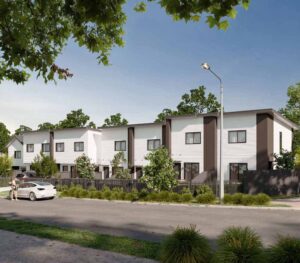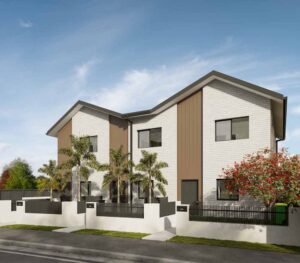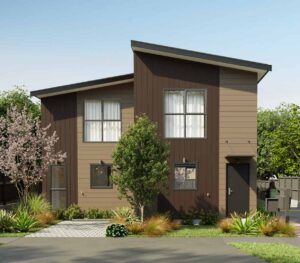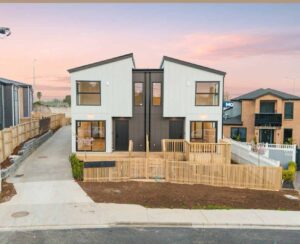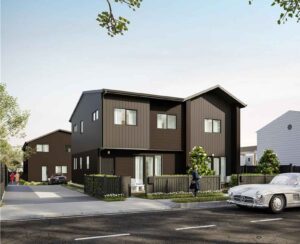Types of Ownership Titles | Everything You Must Know!

When it comes to land ownership in New Zealand, there are several types of titles under which you can process the purchase. These types decide on what you can or cannot do with the property. In this article, we are going to help you understand everything about the four different types of property ownership – Freehold, Leasehold, Unit Title, and Cross-lease.
Let’s discuss each type one by one.
Freehold
Freehold title, commonly known as ‘fee simple’, is one of the most common kinds of property ownership title in New Zealand. When you have a freehold property, you own the land and anything that is built on that land, unless there are any registered or unregistered interests.
What are these interests that may restrict you from using the property?
Here are a few:
- Easements may provide neighbouring property owners or utility providers with the rights to use a part of your land to pass over or connect to services.
- Covenants that might limit what type of property can be built on the land
- Restrictions under the Resource Management Act 1991
- If the land is Maori freehold land
Leasehold Title
This is the title under which someone else owns the land, and you pay rent to them. In this case, you buy the right to possession of the land as well as the buildings built on it in a lease. There are a few cases in which you own the buildings or other improvements on the land on some terms and conditions.
In this case, the terms of the lease will be like:
- The amount of rent you have to pay to the freehold owner is usually called ground rent.
- How often the ground rent is reviewed by the owner.
- Cost & other expenses that come with the property.
Note that at the end, however, you will have to return the land and the buildings to the freehold owner of the land.
Unit Title
This is the type of ownership that is usually known as a ‘strata title’ or ‘stratum estate’. This is the type of title where there are multiple owners. When you are a unit owner, you own –
- your particular apartment, unit or any accessory unit comes with like garages, car park, private courtyard, and storage areas that are mentioned in the record of title.
- an undivided share of ownership of the common property, like lifts, laundries, lobby area, gardens or driveways.
There are a few more things that you, as a unit owner, need to know, like the body corporate. When you are a unit owner, you automatically become a member of the body corporate, which is the group of all unit owners acting as one committee. This is the group that holds the responsibility for all day-to-day decisions via voting.
The operations of the body corporate are taken care of through the annual fee, using which you will be able to take budgeted body corporate expenses, including insurance and other management expenses, which will contribute to a long-term maintenance fund (LTMF) and services that will be required, like rubbish collection, cleaning communal areas, and more…
So, whenever you plan on buying a property under unit title, you must ask for a copy of the body corporate’s rules along with the copy of the body corporate’s meeting minutes, the body corporate’s maintenance plan, and information on real estate fees that you need to pay.
Some quick links for more information:
Know more about Unit titles for all property owners at unittitles.govt.nz
Cross Lease
Cross lease ownership is another type of property title you may come across in New Zealand. With a cross lease, you hold two different interests in the property:
- A share of the freehold title – owned in common with the other cross leaseholders.
- A leasehold interest – giving you the right to occupy a particular area and the building on it. These leases are typically for 999 years at a nominal rent (for example, 10 cents per year, which is rarely collected).
A cross lease title generally comes with a “flats plan” that shows the exact footprint of the building you’re entitled to occupy. In older titles this may be missing, so it’s important to check carefully to confirm:
- that the plan matches the physical layout and footprint of the property
- which areas are for exclusive use by certain leaseholders
- what areas are considered shared or common spaces
Because ownership is shared, changes to either the exclusive-use areas (like your unit or private garden) or the common areas usually require the consent of all, or a majority of, the owners. This could apply to things as simple as repainting the exterior, adding a deck, or putting up a fence. The lease itself may also include restrictions on what you can do with the property.
Cross leases can be more complex to manage than other ownership types. If you’re considering one, it’s a good idea to talk with the other cross-leaseholders to understand how the arrangements work in practice.
These are the four types of property ownership that you must know about in New Zealand. We hope this article helps you get familiar with the ownership titles available for you in New Zealand.

